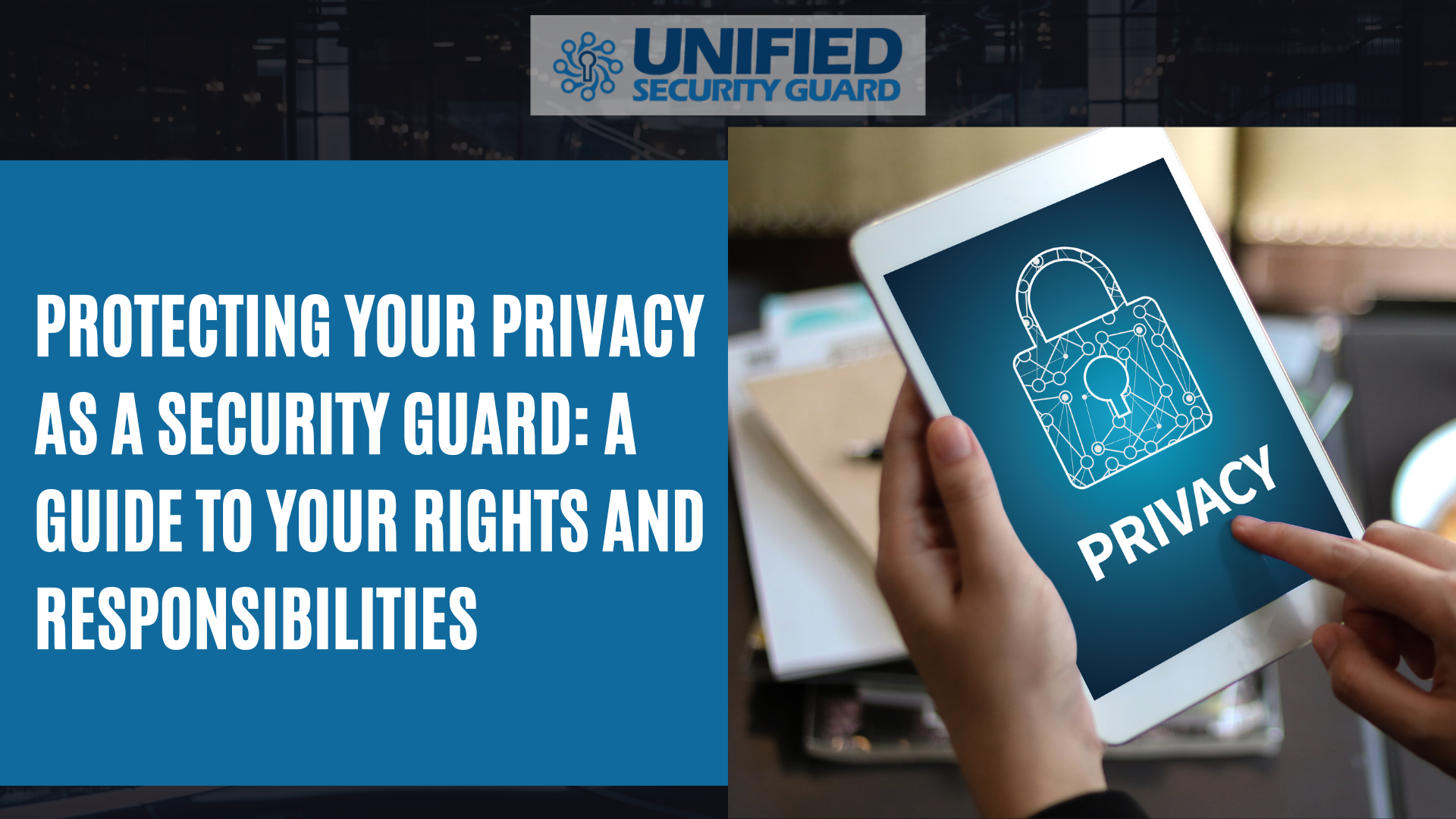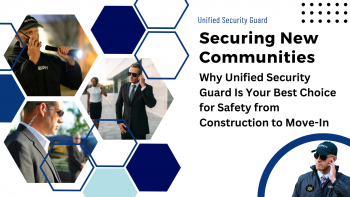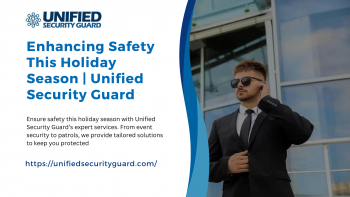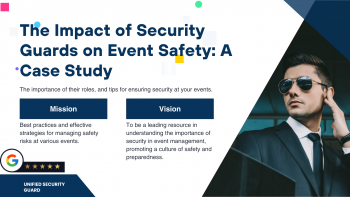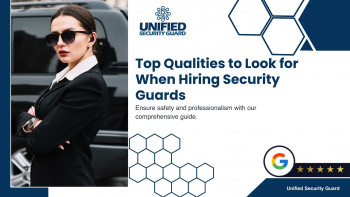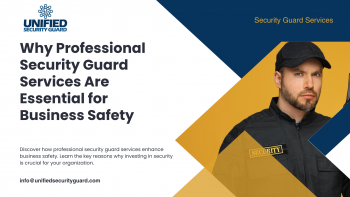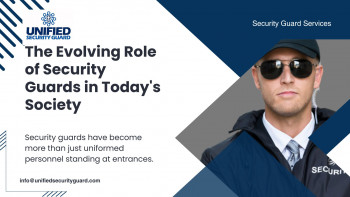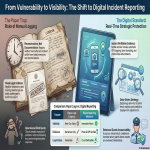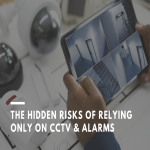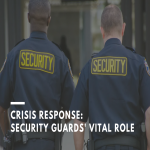Protecting Your Privacy as a Security Guard: A Guide to Your Rights and
Responsibilities
In today's digital age, privacy has become a growing concern
for individuals across all professions. For security guards, who often work in
sensitive environments and handle sensitive information, protecting their
privacy is particularly important. This article will explore the key
considerations for security guards to safeguard their personal data and rights.
Data Privacy and Security
Employment Records: Ensure your employer handles your personal information, such as your Social Security number, address, and contact details, securely.
Timekeeping Systems: Be aware of how your work hours and location data are collected and stored.
Security Cameras: If
you're monitored by security cameras, understand how the footage is used,
stored, and accessed.
Surveillance and Monitoring
Body-Worn Cameras: If you're required to wear a body-worn camera, familiarize yourself with the policies and procedures governing its use.
Electronic Monitoring:
Be informed about any electronic monitoring systems, such as GPS tracking or
biometric scanners, that may be used in your workplace.
Social Media and Online Presence
Professional Image: Be
mindful of your online presence, especially on social media platforms. Avoid
sharing sensitive information or engaging in activities that could compromise
your professional reputation.
Whistleblower Protection
Report Concerns: If you
witness or suspect illegal or unethical activities, understand your rights as a
whistleblower. Report concerns to your supervisor or appropriate authorities
without fear of retaliation.
Legal Rights and Responsibilities
Know Your Rights: Familiarize yourself with your legal rights as a security guard, including those related to privacy, workplace safety, and discrimination.
Seek Legal Advice: If
you have concerns about your privacy or workplace rights, consult with an
attorney.
Best Practices for Protecting Your Privacy
Use Strong Passwords: Create strong, unique passwords for all your online accounts to protect your personal information.
Be Cautious of Phishing Attempts: Be wary of unsolicited emails or messages that ask for personal information.
Regularly Update Software:
Keep your devices and software up-to-date to protect against security
vulnerabilities.
Conclusion
By understanding and protecting your privacy as a security guard, you can contribute to a safer and more secure environment while maintaining your own personal rights. Remember, a proactive approach to privacy, combined with knowledge of your legal rights and responsibilities, is essential in today's digital age.
